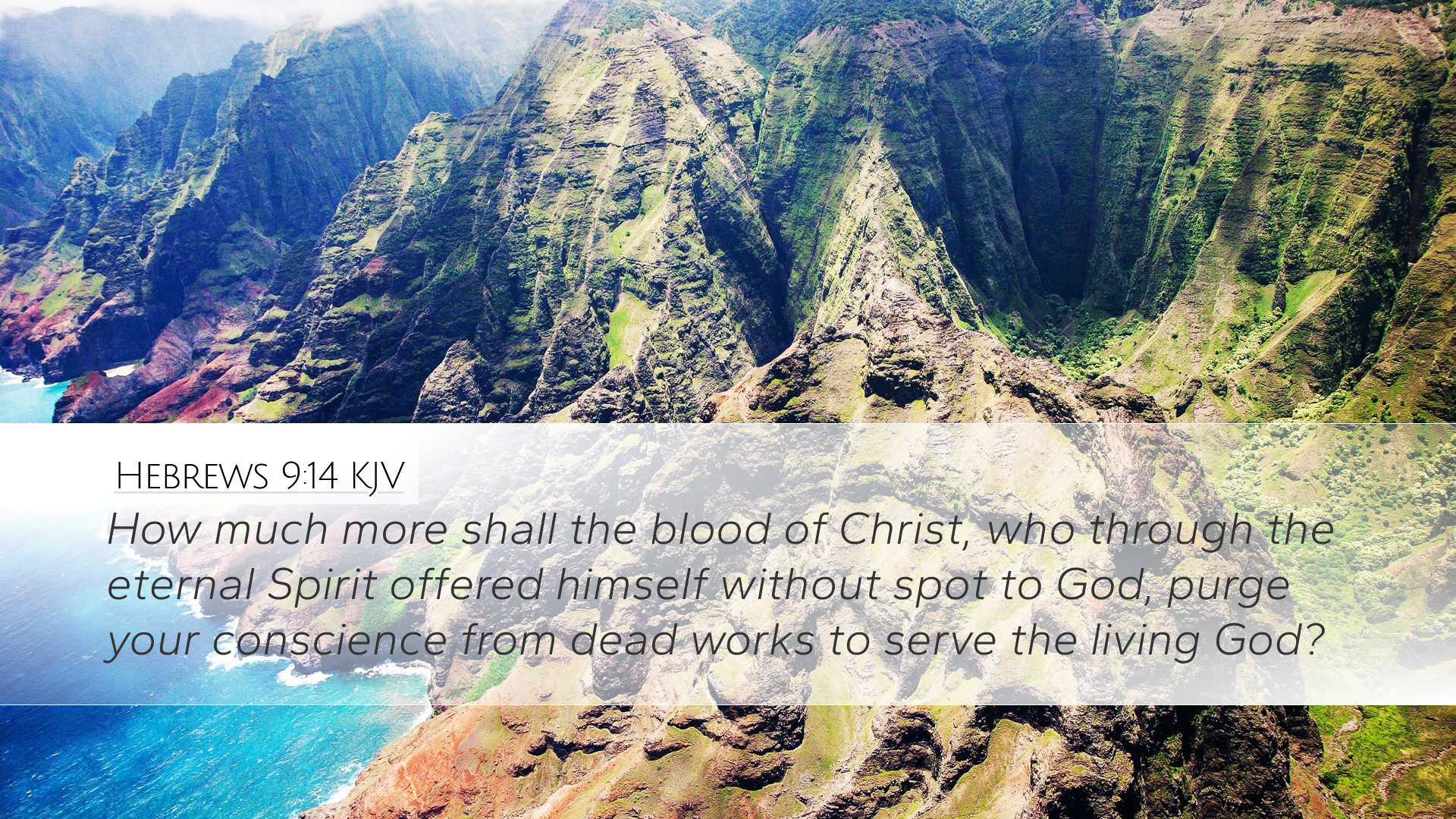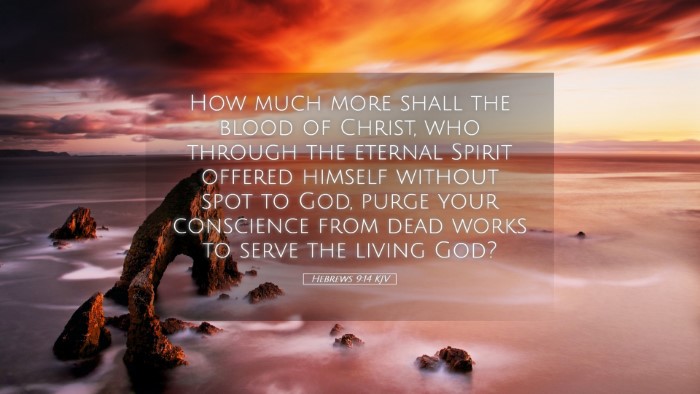Commentary on Hebrews 9:14
“How much more shall the blood of Christ, who through the eternal Spirit offered himself without spot to God, purge your conscience from dead works to serve the living God?”
Introduction
In Hebrews 9:14, the author contrasts the sacrificial system of the Old Testament with the perfect sacrifice of Christ. This verse encapsulates the transformative power of Christ's sacrifice for believers, illustrating the depth of redemption found in His blood, which transcends the limitations of the former covenant.
Analysis of Key Phrases
“How much more”:
Matthew Henry emphasizes that this phrase establishes a profound comparison. If the blood of animals had the ability to sanctify and purify, how much greater is the efficacy of Christ's blood? It signifies the superiority of Christ’s offering.
“The blood of Christ”:
Albert Barnes notes the power of Christ's blood as the ultimate means of atonement. It not only covers sin but also brings complete forgiveness and reconciliation for the believer.
“Through the eternal Spirit”:
Adam Clarke suggests that this reference to the Holy Spirit highlights the divine nature of Christ’s offering. The Spirit is both the agent through whom the sacrifice is made perfect and the one who applies the benefits of that sacrifice to believers.
“Offered himself without spot to God”:
Henry comments on the sinlessness of Christ, indicating that He was unblemished and perfectly suited to be the sacrifice, fulfilling the requirements established in the Law.
“Purge your conscience from dead works”:
Barnes explains that this aspect involves cleansing believers from the guilt and defilement of sin, enabling them to approach God with a purified conscience. The reference to “dead works” denotes those actions that are devoid of life and spiritual significance; thus, true service arises from a cleansed heart.
“To serve the living God”:
Clarke highlights that the ultimate purpose of this cleansing is to enable believers to live in active service to God. This contrasts sharply with the stagnant nature of “dead works.”
Theological Implications
This verse is critical for understanding several key theological principles:
- Redemption and Atonement: The text reiterates the significance of Jesus' sacrifice as the perfect atonement for sin, underscoring the necessity of His blood for salvation.
- The Role of the Holy Spirit: It illuminates the cooperative work of the Trinity in redemption—the Spirit’s involvement in Christ's offering also implies His role in individual believer’s sanctification.
- Conscience and Cleansing: The purging of conscience is a focal point, indicating that genuine transformation starts from within and affects outward behavior and service.
- Service as Worship: It highlights that the outcome of redemption is not merely personal but communal—believers are called to actively serve the living God.
Practical Applications for Believers
Reflecting on Hebrews 9:14, several practical applications emerge for both individual believers and the church as a whole:
- Understanding Sacrifice: Believers should foster a deeper appreciation of Christ's sacrifice, recognizing its necessity and sufficiency for their own lives.
- Living with a Clear Conscience: Regular self-examination and confession of sin lead to a fuller realization of freedom in Christ, as believers access the transformative power of the blood.
- Active Service: Understanding that they are saved to serve, Christians should be motivated to engage in good works that reflect their faith and glorify God.
- Empowerment by the Spirit: Recognizing the Holy Spirit’s role in their lives, believers should seek the Spirit's guidance in their worship and daily living.
Conclusion
Hebrews 9:14 serves as a monumental verse encapsulating the essence of Christian faith—the blood of Christ not only secures redemption but also empowers believers for service. The insights gained from public domain commentaries reveal the richness of this text, reminding us of the work of Christ and the complete transformation available through Him. As individuals rooted in Christ and led by the Spirit, the call is to live vibrantly, engaging in holy service to the living God.


